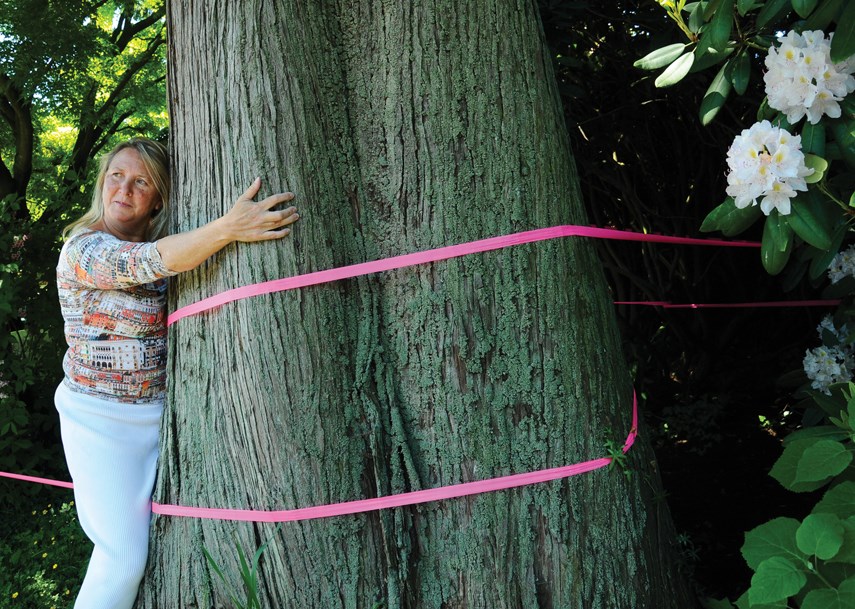West Vancouver residents have been ordered by the courts not to interfere with construction of the Five Creeks stormwater project.
On May 23, the district and its contractors attempted to cut down a massive red cedar at the foot of 31st Street but were stopped when several residents refused to move out of the way. The Disrict of West Vancouver and British Pacific Properties have partnered to build a five-foot storm pipe from the highway to Burrard Inlet to handle excess water dumped by violent storms.
After a day of arguments in B.C. Supreme Court on Friday, Justice Nathan Smith agreed to the district's petition for an injunction forbidding anyone from holding up the project any further.
The court documents named Brian Finnie, Joan Finnie, Lucinda Jones and Susan Bibbings as well as a John Doe and Jane Doe.
The defendants argued the district was violating its own bylaws with the stormwater project, that there were irregularities in its tree removal permits, that the municipality had failed to manage its creeks in the past, that the project was being done without consultation with residents and exclusively for the benefit of British Pacific Properties, and that the loss of trees - both as a result of the project and as a result of continued development above the Upper Levels Highway - would be detrimental to climate change and the environment as a whole.
“The defendants are sincerely concerned about these issues and they may well be correct in their criticisms of the [district]. The question is whether this court has jurisdiction to deal with those concerns,” Smith said in his ruling. “The court has no jurisdiction to supervise or overrule the political and administrative decisions of the elected council if they are acting within their area of authority. In short, the court has no power to tell the (district) of West Vancouver how it should manage its drainage system.”
Smith acknowledged Bibbings’ argument that the world is facing a climate change crisis, but he said, the courts are not the correct venue for that.
“It’s why decisions must be made by elected representatives who have the power to consider a range of competing interests. If they fail to adequately address those issues, the usual remedy for citizens is at the ballot box,” he said.
If there are an irregularities in how the district went about implementing the project, the proper venue would be a court petitioned to hear a judicial review, Smith said.
While he agreed to the district’s request for an injunction, Smith stopped short, however, of granting the district’s request that police be ordered to arrest anyone who interferes with the work.
“I expect that these citizens will obey the law and respect the order of the court. I have no reason to think they won’t. If I am wrong in that, the [district] will have leave to bring further application without notice,” he said.
Outside the court, Bibbings said she held out hope the citizens' group would be successful.
“I’m heartbroken, really. So many citizens have come together and spent weeks, full time (on this). That’s how passionate we feel about this situation,” she said.
Jones said the group will have to decide whether they will seek a judicial review of the overall project.
“It’s a big expenditure of one’s life and one’s time,” she said, adding she would much prefer the district listen to some alternate ideas for stormwater management put forward by the municipality’s knowledgeable citizens.
Asked if he would be out to protest again, Brian Finnie said “Maybe discreetly.”
Roger Finnie, Save West Vancouver Creeks spokesman and one of the John Does named in the suit, said he was heartened by the respect the judge showed for their arguments, even though they weren’t successful. He said he hopes it sends a stark message to district council.
“Even though we’ve lost on legal points, they have to step up to a higher standard. I put the challenge to council to take it to the people - to resign immediately and have a byelection and see what the residents of West Vancouver feel.”



